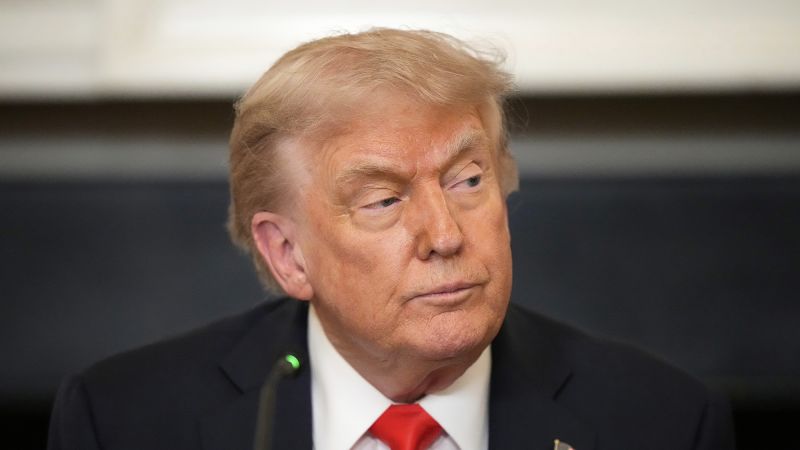The dynamic between former President Donald Trump and billionaire entrepreneur Elon Musk has taken a notably contentious turn, a spectacle that unfolded publicly over social media. In recent statements reported by CNN, Trump expressed indifference toward Musk, stating plainly, “I’m not even thinking about Elon. He’s got a problem. The poor guy’s got a problem.” This quote came during an interview with CNN’s Dana Bash, revealing a personal rift that has come to symbolize not only their deteriorating relationship but also reflects broader societal tensions in an era dominated by technology and political ambition.
The friction between Trump, who has maintained a significant presence in the political landscape, and Musk, the CEO of Tesla and SpaceX, grew palpable over the preceding week. It was marked by a series of online exchanges where both parties took jabs at each other. In this context, Trump had previously voiced his disappointment with Musk for deriding his proposed tax and spending cuts, which Trump believes are foundational to his economic vision. Musk’s retort was sharp: he claimed that Trump would not have maintained his electoral viability without the influence exerted by Musk’s companies and initiatives.
This back-and-forth is emblematic of their prior relationship, which was characterized by a certain level of camaraderie. Trump and Musk were once seen as unlikely allies, with Musk’s innovative ventures aligning with Trump’s pro-business rhetoric. However, the recent discord raises questions about how personal grievances and public policy disagreements can significantly change previously solid alliances.
During a brief yet informative phone call, Trump chose to guide the conversation toward pressing economic issues such as upcoming job reports, inflation rates, and fluctuating gas prices, rather than lingering on personal matters. When pressed about the future of his communication with Musk, Trump preemptively addressed it by stating he did not foresee the opportunity to speak with the billionaire in the near term and concluded his remarks wishing Musk well. This statement presents a somewhat cordial closing to what has been a straining public discourse.
In the wake of this rupture, allies of both figures reportedly attempted to mediate and restore amicable relations between the two industry giants. According to previous reports from CNN, efforts were made behind the scenes to facilitate a truce, recognizing that their collaborative efforts could yield greater benefits than those obtained in opposition.
Elon Musk, reflecting during the exchanges, appeared to signal an openness to reconciliation. His response to a post from influential billionaire investor Bill Ackman highlighted this willingness. Ackman advocated for the two figures to mend their relationship for the betterment of the country, emphasizing the strength that unity could yield. Musk’s agreement with Ackman’s sentiment suggests that, while they may be at odds, the possibility remains for a future partnership—something that could shift the landscape of both politics and business.
In conclusion, the ongoing saga between Trump and Musk serves as a microcosm of the larger emotional and ideological divides that characterize today’s political climate. As digital platforms continue to facilitate rapid exchanges of ideas and grievances, the fallouts can be dramatic, influencing not only personal relations but also wider socio-political dynamics. The engagement between these two powerhouse figures raises important questions about the nature of alliances in the contemporary world, particularly as personal interests and public ambitions collide. As their paths forward remain uncertain, the need for dialogue—both in public and private spheres—stands paramount for the harmony not just within their factions but the broader societal context they inhabit.
This discourse by CNN’s Kevin Liptak and Kaitlan Collins illustrates the intricate relationships among powerful individuals in an era defined by both technological innovation and political upheaval, leaving observers to ponder the future trajectories of their careers and the industries they influence.



